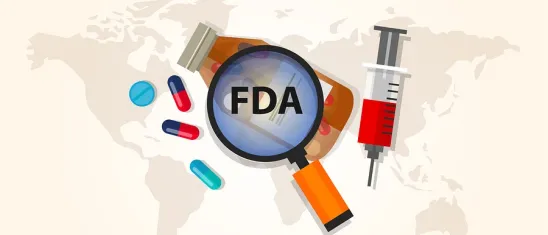As the COVID-19 pandemic continues to alter ways of life across the globe, clinical trials must be adapted for participant safety while maintaining accuracy in the midst of the ongoing crisis. In September 2020, the U.S. Food and Drug Administration (FDA) updated its “Guidance on Conduct of Clinical Trials of Medical Products During COVID-19 Public Health Emergency,” providing specific recommendations for ongoing or upcoming clinic trial activities.
Overview of FDA’s Guidance for Clinical Trials During the Pandemic
This guidance was released in connection with FDA’s role “in protecting the United States from threats such as emerging infectious diseases.” The guidance document provides “general considerations to assist sponsors in assuring the safety of trial participants, maintaining compliance with good clinical practice (GCP), and minimizing risks to trial integrity for the duration of the COVID-19 public health emergency.”
The guidance reflects FDA’s recognition of the fact that “the COVID-19 public health emergency may impact the conduct of clinical trials of medical products,” by way of “quarantines, site closures, travel limitations, interruptions to the supply chain for the investigational product, or other considerations if site personnel or trial participants become infected.” FDA “recognizes that protocol modifications may be required, and that there may be unavoidable protocol deviations due to COVID-19 illness and/or COVID-19 public health control measures.” Health control measures on trials will vary depending on the nature of the disease under study, the trial design, and the regions in which the study is being conducted.
FDA divides its recommendations into categories based on the status of a given trial: ongoing trials and trials where policies and procedures are not yet in place. Like all guidance documents, this does not establish legally enforceable responsibilities, and instead “should be viewed only as recommendations.”
Considerations for Ongoing Trials
FDA identifies 13 considerations for ongoing trials, discussed below. The Agency stated that “[e]nsuring the safety of trial participants is paramount,” and encourages sponsors to consider “each circumstance” with a focus on potential impact on the safety of trial participants. Study conduct should be modified accordingly.
The considerations for ongoing trials include that sponsors may determine that protection of trial participants’ safety, welfare, and rights is best served by continuing a study participant in the trial, or discontinuing the administration or use of the investigational product. In some cases, trial participants who no longer have access to the investigational product or site may need additional safety monitoring.
Some trial participants may not be able to come to the investigational site for protocol-specific visits due to the pandemic, and FDA recommends sponsors evaluate whether alternative methods for safety assessments could be implemented, such as phone contact, virtual visits, and alternative locations for assessments such as local labs or imaging centers. However, sponsors also should analyze whether in-person visits are “necessary to fully assure the safety of trial participants” when making such decisions. If planned on-site monitoring visits are no longer possible, sponsors may consider optimizing use of central and remote monitoring programs to maintain oversight of clinical sites.
Because changes in a trial protocol are not typically implemented before review and approval by the Institutional Review Boards or the International Electrotechnical Commission, and in some cases the FDA, sponsors are encouraged to engage this process as early as possible when urgent changes to the protocol or informed consent are anticipated as a result of the pandemic. FDA clarified that COVID-19 screening procedures that may be mandated by the health care system where a trial is being conducted do not need to be reported as an amendment to the trial protocol.
Trials for Which Policies and Procedures Are Not Yet in Place
For trials in which policies and procedures are not already in place, sponsors are encouraged to establish policies that will protect trial participants and manage study conduct during the possible disruptions caused by the pandemic. Such policies that may be impacted by COVID-19 include the impact on the informed consent process, adverse event reporting, changes in investigators or site staff secondary to travel restrictions or quarantine measures, or COVID-19 related illness itself.
Additional Guidance for All Trials Impacted by COVID-19
For all trials, the FDA encourages sponsors to describe, in appropriate sections of the clinical study report:
-
Contingency measures implemented to manage study conduct during disruption resulting from COVID-19 control measures
-
A list of all participants affected by the disruption resulting from the pandemic, including a description of how the participant’s participation was altered
-
Analyses addressing the impact of contingency measures on the safety and efficacy results reported in the study.
Conclusion
This guidance is intended for a limited duration, only applicable “for the duration of the public health emergency related to COVID-19.” It was implemented without prior public comment, but comments may be submitted at any time for FDA consideration. However, comments may be sent to the FDA Dockets Management Staff (HFA-305), Food and Drug Administration, 5630 Fishers Lane, Rm. 1061, Rockville, MD 20852; or submitted electronically at https://www.regulations.gov.



 />i
/>i
